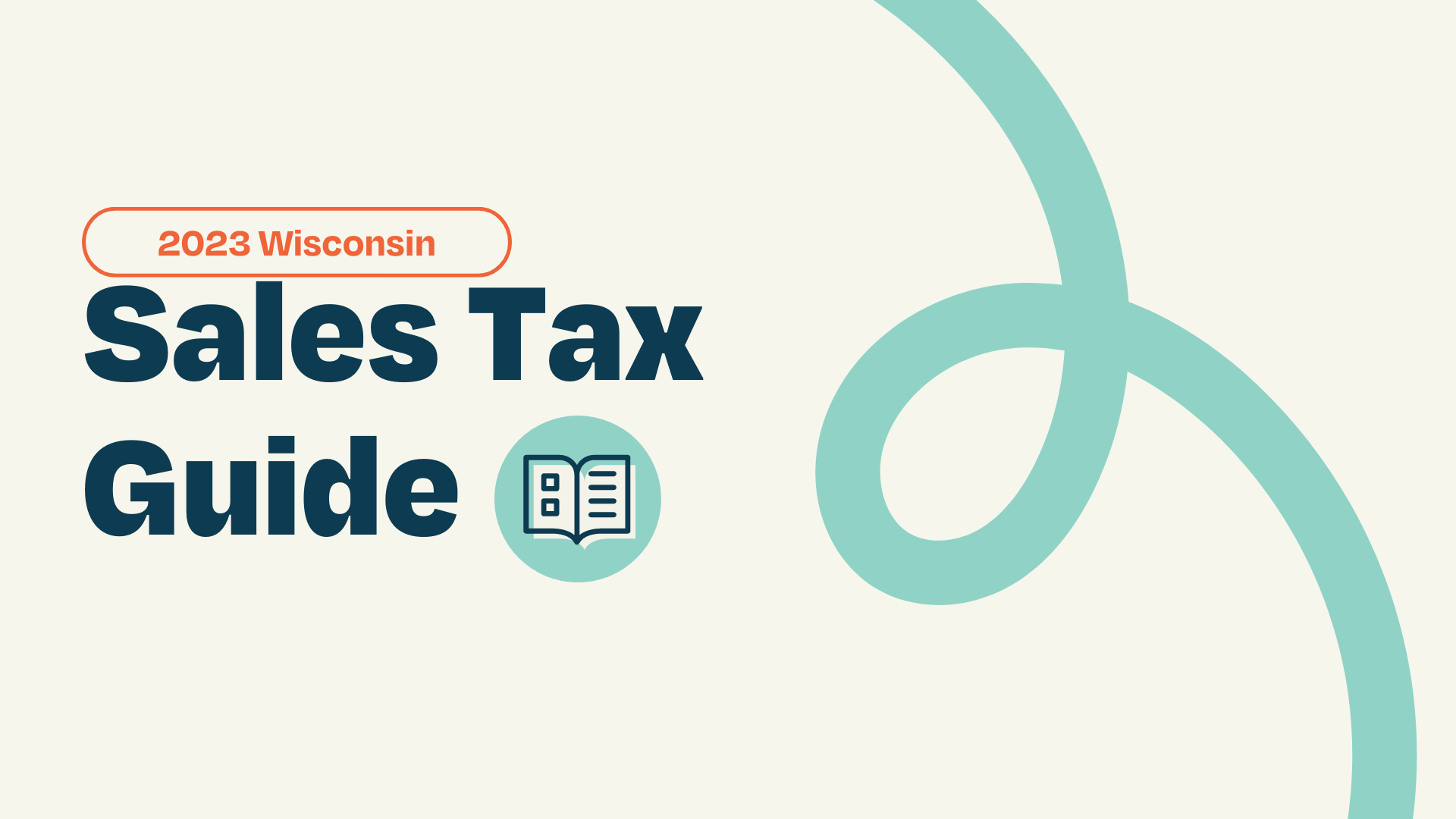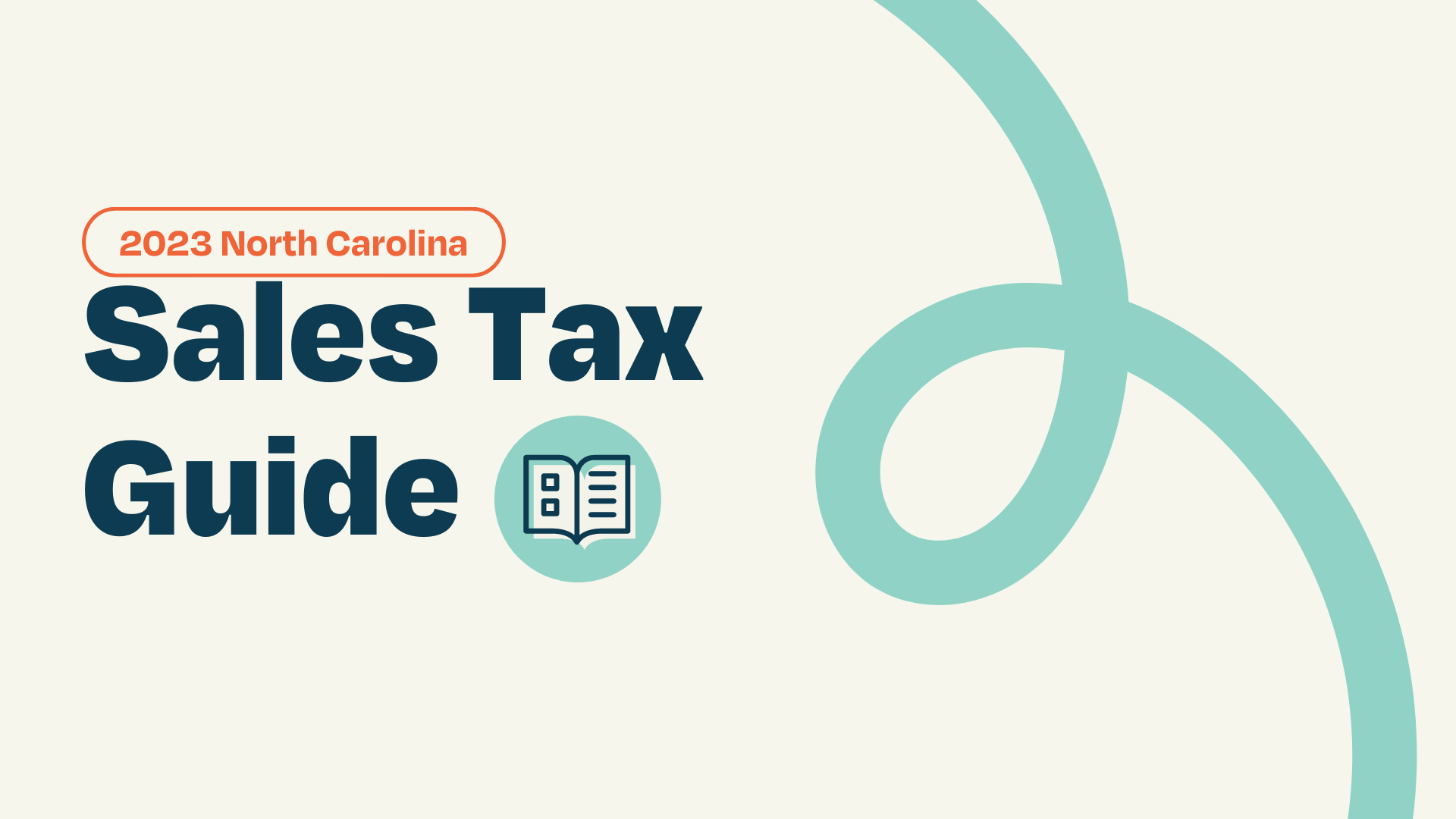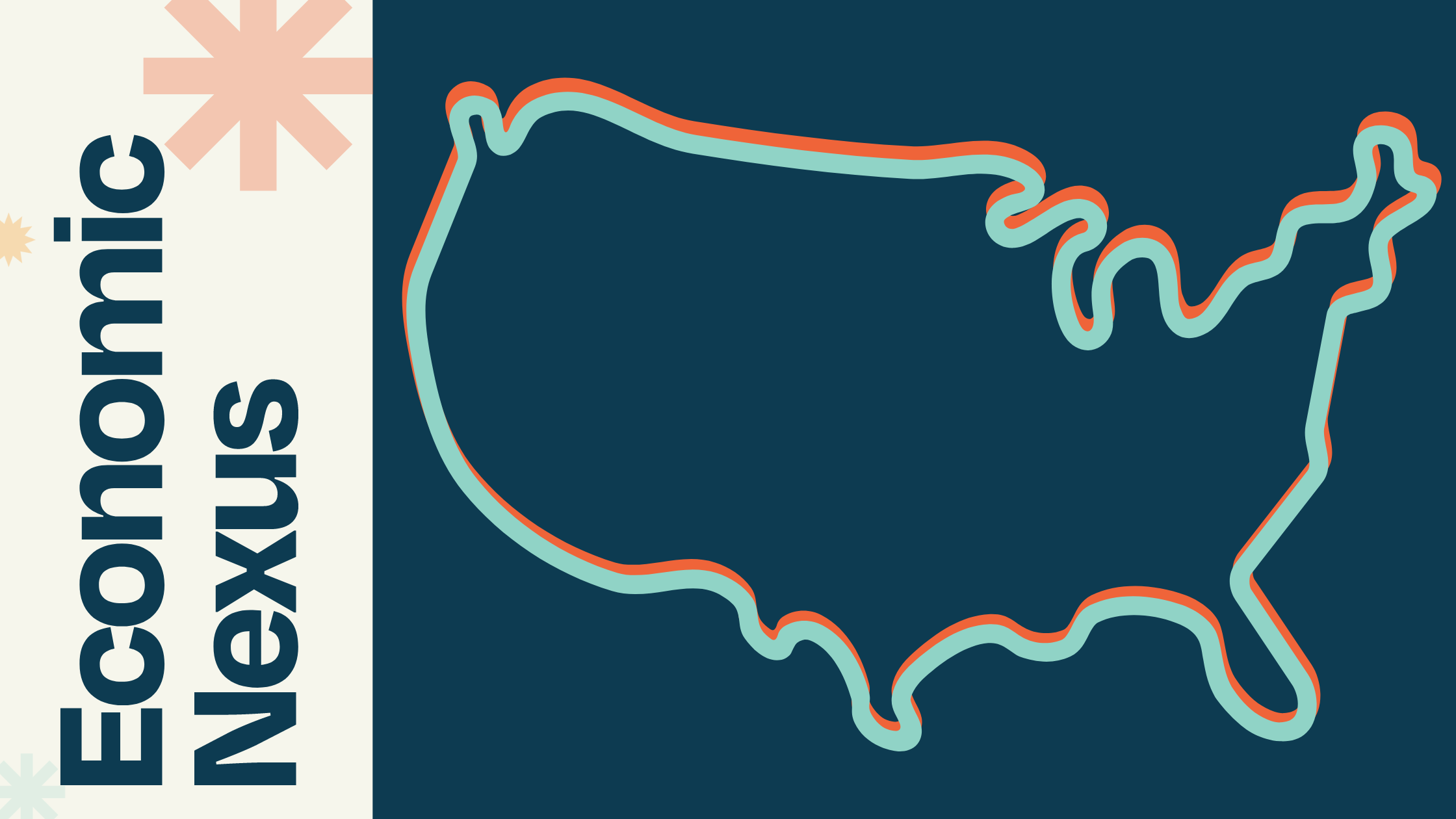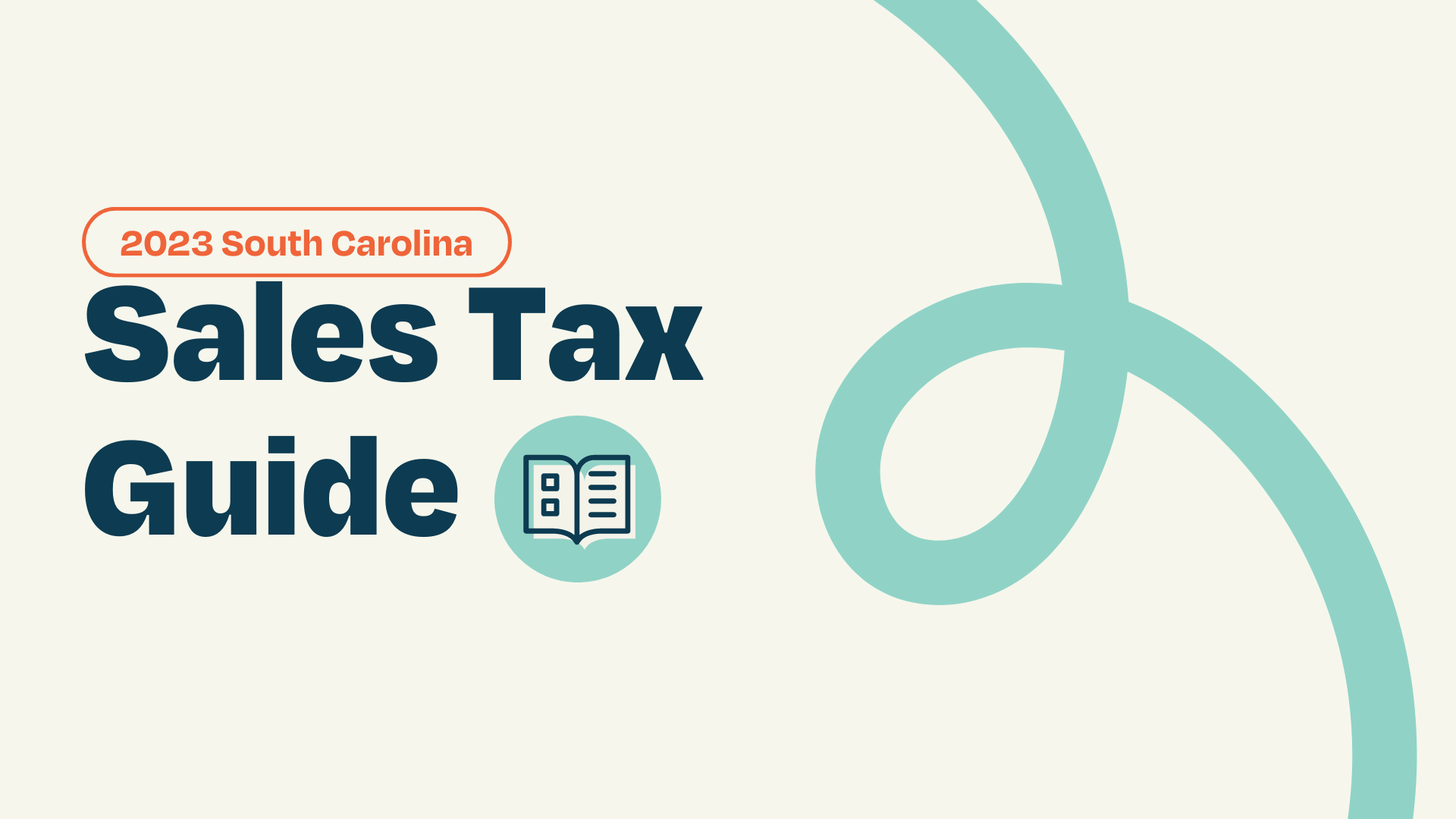1 min read
North Carolina 2023 Sales Tax Guide
North Carolina Sales Tax in a Word As a small business owner, navigating the world of sales tax can feel like a rollercoaster ride. One moment...

Welcome to the land of cheeseheads, frosty brews, and yes, sales tax! The world of Wisconsin sales tax can feel as maze-like as a Packers tailgate parking lot. But don't sweat it — we're here to help you navigate through the bratwurst and beer to the heart of the matter.
From establishing if you have nexus (a connection as solid as the state's love for dairy), to registering for sales tax (as easy as a Lambeau Leap with the right guidance), and even the art of collecting the sales tax (think cheese curds – you want to collect them all!), we're handing you the playbook.
We'll also tackle the big game of filing and paying those sales taxes, and we won't leave you in the fourth quarter without a Hail Mary. We've got five stellar tips to help you avoid common penalties (and we promise they’re more rewarding than a slice of the best Wisconsin cheddar).
So, put on your Cheesehead hat, pour yourself a local lager, and let's dive into the great game of Wisconsin sales tax. With Accountingprose on your team, you're already in the end zone!
|
Table of Contents |
Navigating the world of sales tax can sometimes feel like you're trying to find your way through a Wisconsin corn maze in the middle of October. But just like there's always a friendly farmhand ready to guide you out of the maze, there are resources available to help you manage your sales tax obligations.
The Wisconsin Department of Revenue (DOR) serves as the state's trusty cheesemaker, if you will, when it comes to all things tax-related. They ensure the state's tax laws are properly enforced and provide guidance and support to individuals and businesses alike.
|
Mailing Address |
Wisconsin Department of Revenue P.O. Box 8902 Madison, WI 53708-8902 |
|
Phone Numbers |
(608) 266-2776 |
|
|
|
|
Website |
Don't hesitate to reach out if you have questions or need guidance. With the right resources, navigating sales tax in Wisconsin can be as smooth as a slice of the state's finest cheese.
Just as Wisconsin is famous for its cheese, it's also known for a little thing called 'nexus.' And no, nexus isn't a new artisan cheese variety. In the world of sales tax, having nexus in a state means you have a significant connection with that state, just like the bond between Wisconsinites and their beloved Packers. But what exactly creates sales tax nexus in Wisconsin?
In Wisconsin, nexus can be as layered as a seven-layer salad. Let's dig in and see what creates physical, economic, affiliate, click-through, and marketplace nexus in the state of Wisconsin.
Physical nexus in the state of Wisconsin is created when a seller has a physical presence in the state, such as a warehouse or office. The Wisconsin Department of Revenue has established the following activities that create physical nexus:
Having an office, distribution house, sales house, warehouse or other place of business in Wisconsin.
Having employees operating or soliciting sales or advertising within the state under the authority of the vendor or its subsidiary, regardless of whether the place of business or agent is located in the state permanently or temporarily.
Having representatives in the state performing warranty repairs.
Storing inventory in Wisconsin for the purpose of making sales in the state.
Attending a trade show in Wisconsin for the purpose of taking orders or making sales.
If a seller engages in any of these activities, they will be considered to have physical nexus in Wisconsin and will be required to collect and remit Wisconsin sales tax on all sales that are made to customers in the state.
Economic nexus in the state of Wisconsin is created when a seller has a certain amount of economic activity in the state, such as having sales or customers in the state. The Wisconsin Department of Revenue has established the following thresholds for economic nexus:
$100,000 in gross sales, or
200 or more separate transactions for delivery into the state in the current or immediately preceding calendar year.
If a seller meets either of these thresholds, they will be considered to have economic nexus in Wisconsin and will be required to collect and remit Wisconsin sales tax on all sales that are made to customers in the state.
It is important to note that economic nexus is different from physical nexus. Physical nexus is created when a seller has a physical presence in a state, such as a warehouse or office. Economic nexus is created when a seller has a certain amount of economic activity in a state, regardless of whether the seller has any physical presence in the state.
Affiliate nexus in the state of Wisconsin is created when an out-of-state seller has a related party in Wisconsin that performs certain activities on behalf of the seller. These activities include:
Advertising or promoting the seller's products or services in Wisconsin.
Selling the seller's products or services in Wisconsin.
Soliciting sales of the seller's products or services in Wisconsin.
If an out-of-state seller has an affiliate in Wisconsin that performs any of these activities, the seller will be considered to have affiliate nexus in the state and will be required to collect and remit Wisconsin sales tax on all sales that are made through the affiliate.
Wisconsin does not have click-through nexus. As of July 2023, the only way for an out-of-state seller to establish sales tax nexus in Wisconsin is through economic nexus or affiliate nexus. Economic nexus is met if the seller has more than $100,000 in gross sales or 200 transactions in the state during the current or previous calendar year. Affiliate nexus is met if the seller has an agreement with a person or business in Wisconsin to refer potential customers to the seller's website.
Marketplace nexus in the state of Wisconsin is created when a marketplace facilitator has either:
$100,000 in gross sales or 200 or more separate transactions for delivery into the state in the current or immediately preceding calendar year.
Has physical presence in Wisconsin, such as a warehouse or office.
Marketplace facilitators are required to collect and remit Wisconsin sales tax on all sales that are made or facilitated through their platform, regardless of whether the seller has a Wisconsin sales tax permit or otherwise would have been required to collect sales tax if the sale had not been facilitated by the marketplace facilitator
Yes, indeed! Just as sure as the Badgers love their football, Wisconsin does have use tax laws. If you buy something for use in Wisconsin without paying sales tax (perhaps from an out-of-state seller), you may be required to pay use tax. It's like cleaning up after a tailgate party – nobody really wants to do it, but it's part of the process.
Remember, understanding your nexus status in Wisconsin is key to managing your sales tax obligations. And just like a perfectly aged cheddar, a good understanding of nexus only gets better - and more valuable - over time.
Stepping into the world of Wisconsin sales tax registration can feel like stepping onto the field at a Packers game: it's exciting, a little nerve-wracking, and there are a whole lot of rules to remember. But don't worry, we're here to coach you through it.
Just like planning a Wisconsin fish fry, registering for sales tax in Wisconsin requires a bit of preparation and a few key ingredients. Here's a step-by-step guide to getting you on your way:
Identify if you have sales tax nexus: Before you jump into the registration process, you need to determine if you have a sales tax nexus in Wisconsin. As we've learned, this could be due to physical presence, economic activity, affiliate relationships, click-through referrals, or marketplace sales.
Collect your information: You'll need to gather some key pieces of information before you get started. This includes your business name, address, and entity type, as well as your Federal Tax ID number or EIN (more on this below).
Visit the Wisconsin Department of Revenue website: The Wisconsin DOR is your go-to resource for sales tax registration. You can access their online registration system here.
Complete the online application: The online application process is straightforward and user-friendly, just like ordering cheese curds at your favorite Wisconsin diner. You'll be prompted to enter your business information, including details about your products or services and your estimated monthly sales tax.
Submit your application: After you've filled out the application, you'll need to submit it for review. This is like dropping your line in one of Wisconsin's many fishing holes—you've done the prep, now it's time to wait and see what you catch.
Receive your sales tax license: If your application is accepted, the DOR will issue your sales tax license. You're now officially registered to collect sales tax in Wisconsin, and you're ready to reel in those sales!
Registering for a sales tax license in Wisconsin is as refreshing as a Wisconsin-brewed beer—it's absolutely free!
Yes, you will need a Federal Tax ID Number or EIN (Employer Identification Number) to register for a Wisconsin Sales Tax License. It's like your ID at the local tavern—it's essential for doing business.
Depending on your business type, you might also need to register with the Wisconsin Department of Financial Institutions or the Wisconsin Department of Workforce Development. It's like making a good Wisconsin brat—you've got to know all the ingredients.
Remember, registering for a Wisconsin Sales Tax License is a crucial step in setting up your business. And with the right guidance, it can be as smooth as a well-aged Wisconsin cheddar.
The art of collecting sales tax in Wisconsin is a lot like perfecting a Wisconsin cheese soufflé—it might seem a bit complicated at first, but once you've got a handle on it, it's a piece of cake (or, in this case, soufflé).
To understand Wisconsin's sales tax system, it's important to know that it is a destination-based sales tax state. This means that the sales tax rate is determined by the location of the customer or where the product is being shipped, not where your business is located. For example, if you're sending a cheesehead hat to a Packers fan in Florida, you would charge the sales tax rate based on Florida's rate, not Wisconsin's. It's like tailoring the tax to fit the destination, ensuring a fair and accurate calculation.
In Wisconsin, most tangible personal property (think items you can touch, like a Wisconsin Badgers jersey) and certain services are subject to sales tax. It's like casting a wide fishing net in one of Wisconsin's Great Lakes—you'll catch a whole lot of taxable items.
No, Software-as-a-Service (SaaS) is not subject to sales tax in Wisconsin.
What's the rationale behind Wisconsin exempting Software-as-a-Service (SaaS) from sales tax?
In Wisconsin, SaaS is exempt from sales tax provided that the software resides on the vendor's servers, the customer neither operates nor controls the vendor's server, and the customer has no physical access to the server. Moreover, this exemption is valid as long as the vendor isn't providing a taxable service, like a telecommunications messaging service, in the transaction.
Where can one find more details on Wisconsin's stance on sales tax for Software-as-a-Service (SaaS)?
The document titled 'Sales and Use Tax Treatment Computer – Hardware, Software, Services (October 1, 2009 and Thereafter)' provides a detailed explanation of how Wisconsin approaches sales tax for computer software.
Just as not all cheese is aged the same, not all sales are taxed the same. There are many items exempt from sales tax in Wisconsin, including certain foods, prescription medications, and some farm equipment. It's like the VIP lounge at a Brewers game—some items just don't have to play by the same rules.
Certain organizations and individuals can be eligible for Wisconsin sales tax exemptions. This includes governmental units, nonprofit organizations, and manufacturing and biotechnology firms. It's like being the bratwurst champion at a Wisconsin cook-off—some entities are just special.
If a customer is exempt from sales tax, you should collect a fully completed Wisconsin Sales and Use Tax Exemption Certificate from them. It's like getting an autograph from a Milwaukee Bucks player - you'll want to keep it safe!
If you lose a Wisconsin Sales Tax Exemption Certificate, it's like losing your ticket to a Badgers game—you'll want to rectify that situation quickly! You should ask the certificate holder to provide a new copy. If that's not possible, contact the Wisconsin Department of Revenue for guidance.
Remember, when it comes to collecting sales tax in Wisconsin, knowledge is power. And just like a well-stocked cheese board, the more you know, the better you'll be able to navigate the complexities and enjoy the experience.
Filing and paying your sales taxes in Wisconsin is like making the perfect batch of Wisconsin beer brats—it requires careful timing, the right ingredients, and a bit of Wisconsin savvy. Let's dive into the process.
Just like knowing when to flip your brats on the grill, knowing when to file and pay your sales tax in Wisconsin is crucial. The frequency depends on the volume of your sales, and it can be either monthly, quarterly, or annually. Like the rhythm of a good polka, sticking to your filing schedule is key to avoiding any missteps.
The filing frequency and dues dates are as follows:
|
Early Monthly Filing |
If you collect more than $3,601 in sales tax each quarter, you are an early monthly filer. This is the only due date that is not the last day of the month. |
Early monthly sales tax filers are required to file by the 20th of the month following the end of the reporting period. |
|
Monthly Filing |
If you collect between $1,201 - $3,600 in sales tax each quarter, you are a monthly filer. |
Due on the last day of the month following the reporting period. |
|
Quarterly Filing |
If you collect between $601 - $1,200 in sales tax each quarter, you are a quarterly filer. |
Due on the last day of the month following the reporting period. |
|
Annual Filing |
If you collect $600 or less in sales tax each quarter, you are an annual filer. |
Due on the last day of the month following the reporting period. |
If a Wisconsin sales tax filing date falls on a weekend or holiday, it's like the Packers making it to the Super Bowl—you get a bit of extra time to celebrate! The due date is extended to the next business day. So, you can take a moment to enjoy your cheese curds before getting back to business.
Filing a Wisconsin sales tax return might feel like navigating a cheese maze, but with the right steps, you'll find it's a breeze. Here's a detailed guide to help you:
Gather your records: Just like gathering kindling for a campfire, you'll need to compile all your sales records. This includes total sales, taxable sales, and the amount of sales tax collected.
Log in to the Wisconsin Department of Revenue website: The Wisconsin Department of Revenue's My Tax Account online system is your starting point for filing your sales tax return. It's user-friendly, and you don't need any special software—just your login information.
Fill out your sales tax return: Filling out your sales tax return online is like filling up a basket with fresh Wisconsin produce—each item has its place. You'll be prompted to enter your sales information and the amount of sales tax you've collected.
Review your return: Just like double-checking your fishing line before casting, you'll want to review your return for any errors. Ensure all the numbers are correct, and that you've entered everything in the right place.
Submit your return: After you've reviewed your return, it's time to submit it. This is like casting your line on a peaceful Wisconsin lake—you've done your prep, now it's time to see what happens.
Pay your sales tax: After submitting your return, you can make your sales tax payment directly through the My Tax Account system. It's as easy as ordering a slice of Wisconsin blueberry pie at your favorite diner.
Remember, filing your Wisconsin sales tax return is like following a recipe—the more attention you pay to each step, the better the result will be.
Just like accidentally putting ketchup on a brat in Wisconsin, missing your sales tax filing can lead to some penalties. These can range from late filing fees to interest charges, and even revocation of your sales tax license in severe cases. It's a bit like a penalty flag at a Packers game—you'll want to avoid it if you can.
Yes, Wisconsin offers several sales tax incentives, much like the extra cheese on a Wisconsin pizza. These can include exemptions for manufacturing and biotechnology, as well as certain sales to nonprofit organizations or governmental units. It's always a good idea to check with the Wisconsin Department of Revenue or a tax professional to see what incentives might apply to your business.
Filing your Wisconsin Sales Tax Return might sometimes feel like trying to catch a greased pig at the state fair—challenging, but not impossible! Here are five tips to help you steer clear of common mistakes and get your filing done right.
Know Your Filing Frequency: Like knowing the Packers’ game schedule by heart, you need to know when to file. The frequency of filing sales tax returns in Wisconsin can vary—from monthly to annually—based on your sales volume. Make sure to mark these dates in your calendar to avoid any late filing.
Double-Check Your Numbers: Just like triple-checking the thermostat before making Wisconsin beer cheese soup, ensure your sales and tax numbers are correct. Simple arithmetic errors can lead to miscalculations in the amount of tax owed, which could result in penalties.
Keep Up with Sales Tax Rate Changes: Sales tax rates can change faster than the lead in a Badgers vs. Marquette basketball game. Make sure you're charging the correct rate by regularly checking the Wisconsin Department of Revenue website.
Don't Forget About Exemptions: Not everything is taxed in Wisconsin (thankfully, that includes most foods and prescription medications). Be careful not to charge sales tax on exempt items, and be sure to collect exemption certificates from eligible customers.
File Even If You Don't Owe: In Wisconsin, you must file a "zero return" even if you didn't make any taxable sales during the filing period. It's like showing up to your bowling league even if you're not planning to bowl—you're still part of the team.
Remember, filing your Wisconsin Sales Tax Return doesn't have to be as tricky as a game of Sheepshead. Follow these tips, and you'll be as confident as a Packers fan at a home game!
So, there you have it, folks! Collecting, filing, and paying your sales taxes in Wisconsin doesn't have to be as mystifying as the Hodag of Rhinelander. With a bit of preparation, a dash of organization, and a healthy helping of Wisconsin spirit, you'll navigate the sales tax landscape like a pro cheese curder.
At Accountingprose, we're here to help you every step of the way. We're as committed to your success as a Wisconsinite is to their tailgating. So, whether you have questions about sales tax, need help with filing, or just want to discuss the latest Brewers game, don't hesitate to get in touch. Because when you partner with us, you're not just getting a service, you're joining a team. And in Wisconsin, we know a thing or two about the power of teamwork.
|
Alaska Sales Tax Guide (N/A) |
||||
|
Montana Sales Tax Guide (NA) |
||||
|
Oregon Sales Tax Guide (N/A) |
||||
|
Delaware Sales Tax Guide (N/A) |
||||
|
New Hampshire Sales Tax Guide (NA) |
||||
And don't forget to check out our blog about Economic Nexus, which serves as an invaluable resource for businesses who have sales that are subject to sales tax.
This blog is for informational purposes only and the information is accurate as of 2023-06-19. If you want legal advice on sales tax law for your business, please contact a State and Local Tax (SALT) professional. Keep in mind that sales tax regulations and laws are subject to change at any time. While we strive to keep our blog current, this blog possibly may be out of date by the time you review it.

1 min read
North Carolina Sales Tax in a Word As a small business owner, navigating the world of sales tax can feel like a rollercoaster ride. One moment...

1 min read
As businesses continue to expand their online presence, understanding the implications of economic nexus has become increasingly important. Economic...

South Carolina Sales Tax in a Word Welcome, fellow adventurers! Are you ready to navigate the exciting waters of South Carolina sales tax? I...